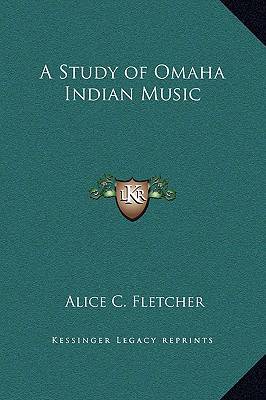
- Afhalen na 1 uur in een winkel met voorraad
- Gratis thuislevering in België vanaf € 30
- Ruim aanbod met 7 miljoen producten
- Afhalen na 1 uur in een winkel met voorraad
- Gratis thuislevering in België vanaf € 30
- Ruim aanbod met 7 miljoen producten
Zoeken
Omschrijving
""A Study of Omaha Indian Music"" is a book written by Alice C. Fletcher, which explores the music of the Omaha Native American tribe. The book provides a detailed analysis of the different types of music that are found in the Omaha culture, including songs, dances, and other musical traditions. The author also delves into the history and significance of these musical practices, examining how they have evolved over time and how they continue to be an important part of the Omaha community. Throughout the book, Fletcher draws on her extensive research and firsthand experiences with the Omaha people to provide a comprehensive and insightful look at their music and culture. This book is an essential resource for anyone interested in Native American music, culture, and history.1893. In many respects, Alice Fletcher was a typical Victorian intellectual, articulate, energetic, and active in a variety of social movements and women's organizations. She began her studies of American Indian life under the private tutelage of Frederick W. Putnam, director of Harvard University's Peabody Museum. Fletcher's long association with the Omaha people began at an 1880 Boston literary gathering with an introduction to Francis and Susette La Flesche, the son and daughter of Omaha chief Joseph La Flesche. Prior to this meeting, her anthropology lectures were primarily based on library research and a small amount of archaeological fieldwork. Fletcher decided she wanted to observe Indian culture directly and made arrangements to visit the Omaha reservation the following year. Over the next three decades, she traveled extensively throughout the West, studying not only Omaha traditions but those of the Pawnee, Sioux, Arapaho, Cheyenne, Chippewa, Oto, Osage, Nez Perce, Ponca, and Winnebago as well, but she is best known for her work on Omaha music and culture.This scarce antiquarian book is a facsimile reprint of the old original and may contain some imperfections such as library marks and notations. Because we believe this work is culturally important, we have made it available as part of our commitment for protecting, preserving, and promoting the world's literature in affordable, high quality, modern editions, that are true to their original work.
Specificaties
Betrokkenen
- Auteur(s):
- Uitgeverij:
Inhoud
- Aantal bladzijden:
- 154
- Taal:
- Engels
Eigenschappen
- Productcode (EAN):
- 9781169265899
- Verschijningsdatum:
- 10/09/2010
- Uitvoering:
- Hardcover
- Formaat:
- Genaaid
- Afmetingen:
- 178 mm x 254 mm
- Gewicht:
- 489 g

Alleen bij Standaard Boekhandel
+ 105 punten op je klantenkaart van Standaard Boekhandel
Beoordelingen
We publiceren alleen reviews die voldoen aan de voorwaarden voor reviews. Bekijk onze voorwaarden voor reviews.











